Unlock Financial Success: The Ultimate Guide to Tax and Bookkeeping Solutions for Small Businesses
Unlock Financial Success: The Ultimate Guide to Tax and Bookkeeping Solutions for Small Businesses

The Ultimate Guide to Tax and Bookkeeping Solutions for Small Businesses | Take Flight Business Solutions
Navigating the financial landscape can be daunting for small business owners, but mastering tax and bookkeeping solutions is essential for achieving long-term success. This ultimate guide is designed to empower you with the knowledge and tools necessary to streamline your financial processes and drive growth. From understanding tax obligations to implementing effective bookkeeping practices, we'll cover everything you need to keep your business thriving.
At Take Flight Business Solutions, we've helped hundreds of small businesses across Pensacola, Gulf Breeze, and Northwest Florida master their finances—and we can help you too, whether you're local or need virtual support nationwide. Whether you're a seasoned entrepreneur or just starting out, our actionable insights and expert tips will help demystify the complexities of accounting. Unlocking financial success is not just about compliance—it's about leveraging your finances to reach new heights. Join us as we dive into strategies that will enhance your financial management and set you on the path to prosperity. Let's take the first step towards transforming your business into a financially stable powerhouse!
Understanding the Importance of Tax and Bookkeeping for Small Businesses
Tax and bookkeeping are the backbone of financial management for any business, and they hold even more significance for small businesses. Proper handling of these aspects ensures compliance with legal requirements, preventing costly penalties and legal issues. More importantly, it provides a clear picture of the business's financial health, allowing owners to make informed decisions. Financial stability is crucial for growth, and understanding the financial landscape can make or break a small business.
Small business owners often wear many hats, but neglecting tax and bookkeeping duties can lead to serious repercussions. Inaccurate or incomplete records can result in overpaying or underpaying taxes, both of which have adverse effects. Overpaying taxes reduces the capital available for reinvestment, while underpaying can attract hefty fines and interest charges from the IRS and Florida Department of Revenue. Therefore, meticulous attention to tax and bookkeeping is not merely about compliance; it's about optimizing financial performance and ensuring the longevity of the business.
Furthermore, organized financial records facilitate easier access to funding. Lenders and investors require transparent financial statements to assess the risk and viability of a business. Well-maintained books can significantly improve the chances of securing loans or attracting investors, providing the necessary capital for expansion. Understanding the importance of tax and bookkeeping is the first step towards unlocking financial success and driving sustainable growth.
Key Tax Regulations Every Small Business Owner Should Know
Navigating the complex landscape of tax regulations can be overwhelming, especially for small business owners. However, being well-versed in key tax regulations is essential to ensure compliance and avoid legal pitfalls. One of the foundational aspects is understanding the different types of taxes that a small business may be subject to, including income tax, self-employment tax, payroll tax, and sales tax. Each type has its own set of rules and deadlines that must be adhered to meticulously.
Income tax is typically the largest tax obligation for small businesses. Depending on the business structure, this could be filed as personal income tax for sole proprietors or as corporate tax for incorporated entities. It's vital to keep track of all income and expenses to accurately calculate taxable income. Self-employment tax is another significant consideration for sole proprietors and partners, covering Social Security and Medicare contributions. Understanding these obligations helps in planning for tax payments and avoiding unexpected financial strain.
Payroll tax is another critical area, encompassing federal and state taxes withheld from employee wages. Small business owners must ensure timely and accurate payroll tax filings to avoid penalties. Additionally, Florida businesses benefit from no state income tax, but sales tax regulations still apply and vary by county. Businesses must comply with the rules applicable to their location and the nature of their sales. Staying updated with changes in tax laws and consulting with a professional tax preparation service can be beneficial in navigating these complexities. Mastering key tax regulations not only ensures compliance but also positions the business for financial stability and growth.
The Role of Bookkeeping in Financial Management
Bookkeeping plays a pivotal role in the financial management of any small business. It involves recording and organizing all financial transactions, providing a clear and accurate picture of the business's financial health. Effective bookkeeping allows business owners to track income and expenses, monitor cash flow, and assess profitability. This information is crucial for making informed business decisions, setting budgets, and planning for future growth.
One of the primary benefits of diligent bookkeeping is improved financial control. By maintaining up-to-date records, small business owners can identify trends, manage expenses, and optimize revenue streams. This proactive approach helps in avoiding financial pitfalls and ensures that the business remains on a stable footing. Additionally, accurate bookkeeping simplifies the process of tax preparation, reducing the risk of errors and ensuring that all eligible deductions and credits are claimed.
Bookkeeping also plays a significant role in securing financing. Lenders and investors require detailed financial statements to evaluate the financial health and potential of a business. Well-maintained books provide the transparency needed to build trust and confidence, increasing the likelihood of obtaining necessary funding. Ultimately, effective bookkeeping is not just about record-keeping; it's about leveraging financial data to drive strategic decision-making and long-term success.
Common Bookkeeping Challenges Faced by Small Businesses
Despite its importance, bookkeeping can present several challenges for small businesses. One of the most common issues is the lack of time and resources. Small business owners often juggle multiple responsibilities, leaving little time to focus on maintaining accurate financial records. This can lead to disorganized books, missed transactions, and errors that complicate financial management and tax preparation.
Another significant challenge is the lack of bookkeeping knowledge and expertise. Many small business owners do not have a background in accounting, making it difficult to navigate the complexities of financial record-keeping. Understanding accounting principles, categorizing transactions correctly, and reconciling accounts can be daunting tasks. Without proper training or support, these challenges can result in inaccurate financial data, hampering decision-making and compliance efforts.
Technology-related challenges also impact small business bookkeeping. While bookkeeping software can streamline processes, selecting the right tool and learning how to use it effectively can be overwhelming. Additionally, data security is a concern, as financial information must be protected from cyber threats. Overcoming these challenges requires a combination of education, the right tools, and possibly professional assistance from a qualified small business accountant to ensure that bookkeeping practices are efficient and accurate.
Tax Deductions and Credits Available for Small Businesses
Maximizing tax deductions and credits is an essential strategy for reducing tax liability and improving the bottom line for small businesses. Various deductions are available that can significantly lower taxable income, thereby reducing the amount of tax owed. Common deductions include business expenses such as rent, utilities, office supplies, and salaries. It's crucial to keep detailed records and receipts to substantiate these expenses and ensure they are claimed correctly.
Home office deductions are particularly beneficial for small business owners who operate from their homes. This deduction allows a portion of home-related expenses, such as mortgage interest, rent, utilities, and maintenance, to be deducted based on the percentage of the home used for business purposes. Additionally, vehicle expenses related to business operations can be deducted, either by using the standard mileage rate or actual expenses method.
Tax credits are another powerful tool for reducing tax liability. Unlike deductions, which reduce taxable income, credits directly reduce the amount of tax owed. Various credits are available to small businesses, including the Research and Development (R&D) Credit, Work Opportunity Credit, and Small Business Health Care Tax Credit. Staying informed about available deductions and credits and consulting with a tax professional can help small business owners optimize their tax strategy and retain more of their hard-earned income.
Choosing the Right Bookkeeping Method: Manual vs. Software
Selecting the appropriate bookkeeping method is a critical decision for small business owners. The two primary options are manual bookkeeping and using bookkeeping software. Each method has its advantages and disadvantages, and the choice depends on the specific needs and resources of the business.
Manual bookkeeping involves recording financial transactions by hand, typically in a ledger or spreadsheet. This method is cost-effective and straightforward, making it suitable for very small businesses with limited transactions. However, manual bookkeeping can be time-consuming and prone to errors, especially as the volume of transactions increases. It also lacks the advanced features and automation capabilities that software solutions offer.
Bookkeeping software, on the other hand, provides a more efficient and accurate way to manage financial records. Software solutions automate many bookkeeping tasks, such as categorizing transactions, reconciling accounts, and generating financial reports. This not only saves time but also reduces the risk of errors. Additionally, many software options offer features like invoicing, payroll processing, and tax preparation, further streamlining financial management. While there is a cost associated with using software, the benefits often outweigh the expense, especially for growing businesses. Ultimately, the right choice depends on the complexity of the business's financial needs and the resources available.
Essential Bookkeeping Tools and Software for Small Businesses
Investing in the right bookkeeping tools and software can significantly enhance the efficiency and accuracy of financial management for small businesses. There are numerous options available, each offering a range of features to suit different needs and budgets. The industry leading bookkeeping software solution in the United States is Intuit QuickBooks.
QuickBooks is one of the most widely used bookkeeping software options, known for its comprehensive features and user-friendly interface. It offers tools for invoicing, expense tracking, payroll processing, and tax preparation. QuickBooks also integrates with various other business applications, providing a seamless financial management experience. Its scalability makes it suitable for businesses of all sizes, from startups to established enterprises. At Take Flight Business Solutions, our certified QuickBooks ProAdvisors can help you set up, optimize, and troubleshoot your QuickBooks system to ensure you're getting the most out of this powerful platform.
ADP is a popular payroll tool that streamlines employee payment processing, tax withholding, and compliance reporting. Many accountants, including our team at Take Flight Business Solutions, offer discounted access to ADP as part of comprehensive payroll management services. This partnership approach ensures that your payroll is processed accurately and on time, while also providing seamless integration with your bookkeeping software. By working with a professional accounting firm that offers payroll services, you can save time, reduce errors, and maintain compliance with complex payroll tax regulations—all while potentially accessing better pricing than you'd get on your own.
When to Hire a Professional Tax Consultant and Bookkeeper in Florida
Deciding when to hire a professional tax consultant or bookkeeper is a crucial consideration for small business owners. While managing taxes and bookkeeping independently can save costs, there comes a point when professional assistance becomes necessary to ensure accuracy and compliance.
Some telltale signs that you need a tax and bookkeeping professional with expertise include when you have a payroll to manage and you have an advanced business structure such as an S-Corporation/LLC. This is even more the case if you have inventories or a lot of assets. Someone has got to do the work, and would you rather it be you or someone else focusing on what you do best—growing your business?
Other key indicators that it's time to hire a professional is when the complexity of the business's financial transactions increases. As the business grows, the volume of transactions and the intricacies of tax regulations can become overwhelming. A professional bookkeeper can manage day-to-day financial records, ensuring that all transactions are accurately recorded and categorized. This not only saves time but also reduces the risk of errors that could lead to financial discrepancies or tax issues.
Another factor to consider is the need for strategic financial advice. A tax consultant can provide valuable insights into tax planning, helping to identify opportunities for deductions and credits that may not be obvious. They can also assist with tax preparation, ensuring that all filings are accurate and submitted on time. Additionally, during critical financial events such as audits, mergers, or expansions, having a professional on board can provide the expertise needed to navigate these situations effectively. Ultimately, hiring a professional allows business owners to focus on core operations while ensuring that their financial management is in expert hands.
Ready to Take Flight with Expert Financial Management?
Whether you're struggling with QuickBooks, falling behind on bookkeeping, or need strategic CFO guidance, our Pensacola-based team is here to help. We offer virtual bookkeeping services nationwide and hands-on support throughout Northwest Florida.
📞 Call 850-303-2133 or schedule a free consultation today.
Best Practices for Maintaining Accurate Financial Records
Maintaining accurate financial records is essential for the smooth operation and growth of any small business. Implementing best practices in bookkeeping not only ensures compliance with tax regulations but also provides a clear picture of the business's financial health. One of the fundamental practices is to establish a regular schedule for updating financial records. Consistency in recording transactions helps prevent errors and ensures that financial data is always up-to-date.
Another best practice is to separate personal and business finances. Mixing personal and business expenses can complicate bookkeeping and make it challenging to track the financial performance of the business accurately. Opening a dedicated business bank account and using business credit cards for transactions can help maintain clear boundaries between personal and business finances.
Regular reconciliation of accounts is also crucial for maintaining accurate financial records. Reconciling bank statements, credit card statements, and other financial accounts ensures that all transactions are accounted for and that there are no discrepancies. This practice helps in identifying and rectifying errors promptly. Additionally, leveraging technology, such as bookkeeping software, can automate many processes and reduce the risk of human error. By adhering to these best practices, small business owners can ensure that their financial records are accurate, reliable, and conducive to informed decision-making.
Professional Bookkeeping Services in Pensacola and Beyond
At Take Flight Business Solutions, we understand that every small business has unique financial needs. Whether you're a local Pensacola restaurant managing inventory and payroll, a Gulf Breeze consulting firm tracking billable hours, or a Milton-based contractor juggling multiple projects, our team provides customized accounting solutions tailored to your industry and business model.
Our comprehensive services include:
- QuickBooks ProAdvisor Services - Expert setup, training, and ongoing support
- Virtual Bookkeeping - Remote bookkeeping services for businesses nationwide
- Payroll Management - Full-service payroll processing with ADP integration
- Outsourced CFO Services - Strategic financial guidance without the full-time cost
Based in Pensacola, we proudly serve businesses throughout Escambia and Santa Rosa Counties, including Pace, Cantonment, Milton, Gulf Breeze, Navarre, and Fort Walton Beach. Our virtual capabilities also allow us to support small businesses nationwide who need reliable, expert accounting services without geographical limitations.
Conclusion: Taking Control of Your Business Finances for Long-Term Success
In conclusion, mastering tax and bookkeeping solutions is fundamental for small business owners aiming to achieve long-term success. Understanding the importance of these aspects, staying informed about key tax regulations, and implementing effective bookkeeping practices are crucial steps in building a financially stable business. Overcoming common bookkeeping challenges, maximizing tax deductions and credits, and choosing the right tools and methods can significantly enhance financial management.
The decision to hire professional assistance when needed can further ensure accuracy and compliance, allowing business owners to focus on growth and core operations. By maintaining accurate financial records and adhering to best practices, small businesses can unlock their full potential and drive sustainable growth. Financial success is not just about compliance; it's about leveraging financial insights to make strategic decisions and propel the business towards prosperity.
Taking control of your business finances requires dedication, knowledge, and the right resources. This ultimate guide has provided the foundational knowledge and actionable strategies to help small business owners navigate the complexities of tax and bookkeeping. By implementing these insights, you can transform your business into a financially stable powerhouse, ready to seize new opportunities and achieve long-term success. Start today, and take the first step towards unlocking financial success for your small business.
At Take Flight Business Solutions, we offer QuickBooks ProAdvisors, virtual bookkeepers, payroll management services, and outsourced CFO or small business CFO services. We have everything you need to run a successful business. To avoid problems with the IRS and state authorities, and to ensure smooth and headache-free growth, contact us today at 850-303-2133. Our offices are located in Pensacola, Florida, and while we service cities such as Pace, Cantonment, Milton, and Gulf Breeze, we are happy to work with clients nationally across the United States virtually as well.
Take Flight Business Solutions
📞 850-303-2133
📍 Pensacola, Florida
🌐 Serving Northwest Florida & Nationwide
Your trusted partner for bookkeeping, tax preparation, and CFO services.












